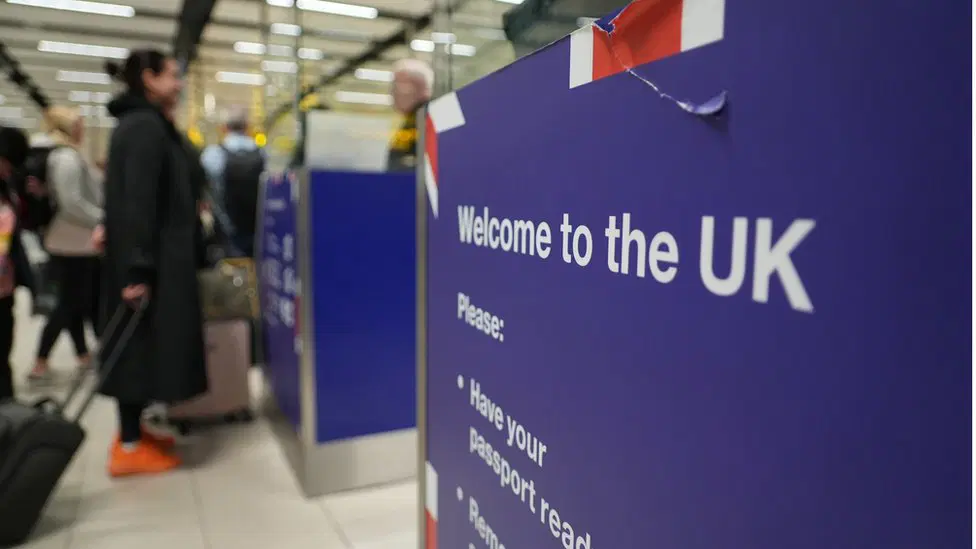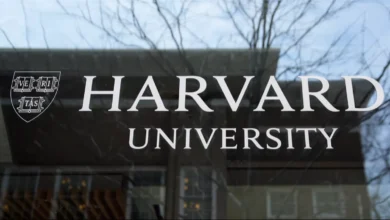
Many Nigerian youths’ aspirations to move to the United Kingdom for work or education are increasingly being dashed following the release of a contentious White Paper by the British government aimed at reducing net migration.
The proposed immigration reforms have sparked widespread debate and are prompting many prospective migrants, as well as those already in the UK, to reassess their plans.

On Monday, British Prime Minister Keir Starmer unveiled the 2025 Immigration White Paper, titled “Restoring Control over the Immigration System.”
ALSO READ: The immigration white paper has been published
The document outlines sweeping measures to cut net migration by 100,000 annually, introducing major changes across work, study, family, and asylum pathways.
The document outlines several proposed measures, including a longer settlement timeline, a higher threshold for skilled worker visas, a reduced duration for post-study work visas, and stricter English language requirements for both prospective and current immigrants.
It is important to note that the White Paper is not yet official policy.
A bill will be drafted based on public and stakeholder feedback, after which it will be presented to Parliament for debate and possible approval before becoming law.
Despite its preliminary status, the White Paper has sparked widespread concern, with many Nigerians expressing disappointment and frustration over what they see as a rapidly narrowing opportunity to relocate to the UK.
A particularly concerning clause in the paper states, “Legislation will be brought in to make clear that the government and parliament, not courts, determine who should stay, tackling misuse of Article 8 (right to family life) to block deportations.”
STRICTER CONDITIONS FOR WORKERS, STUDENTS
As part of efforts to cut down on work-related migration, the UK government will now require skilled workers to hold university degrees and meet newly increased salary thresholds to be eligible for visas.
The White Paper warned that the UK was becoming an “island of strangers” and revealed that the Immigration Skills Charge, paid by sponsoring employers, will be increased by 32% for the first time since 2017, aligning with inflation.
The social care sector, which employs a large number of Nigerian migrants, is also expected to face stringent new restrictions.
The paper states,
Social care visas will close to new overseas applicants; people already in the UK with work rights can extend or switch visas until 2028, subject to review.
International students and the universities that sponsor them are also affected by the proposed changes. Under the new rules, graduates will be allowed to remain in the UK for only 18 months after completing their studies, reduced from the current two-year period.
Additionally, the government is considering imposing a levy on income generated from international students, with the proceeds potentially allocated to support domestic skills development.
Universities will face tighter compliance requirements, including the need to maintain a minimum 95% course enrolment rate and a 90% completion rate.
Moreover, the standard pathway to permanent residency will be extended to 10 years, unless the individual demonstrates significant economic or social contributions.
NIGERIANS EYE ALTERNATIVE DESTINATIONS
Dr. Oyedele Ogundana, a senior lecturer at Nottingham Trent University in England, urged Nigerians to carefully reevaluate their plans to move to the UK, given the newly proposed, more stringent immigration rules.
He said,
Given the UK’s new immigration policies, such as extending residency requirements from five to 10 years, stricter English language criteria, and halting new social care visas, Nigerians should reassess their plans.
Countries like Germany, Portugal, Australia, and Canada offer more accommodating immigration policies. Germany is actively recruiting skilled workers; Canada and Portugal have a welcoming environment for African immigrants; Australia offers favourable conditions for skilled migrants and students.
For those already residing in the UK, Dr. Ogundana advised consulting legal experts to better understand their rights and options under the proposed immigration changes.
Despite the tougher regulations, some believe Nigerians living in the UK can still find ways to adjust.
London-based Nigerian lawyer, Mrs. Efuru Nwapa, acknowledged that Prime Minister Keir Starmer is facing significant pressure to tighten immigration controls.
- FOLLOW US ON INSTAGRAM: Get the most important news on your social media feed
- FOLLOW US ON FACEBOOK: Get the most important news on your social media feed
- FOLLOW US ON X: Get the most important news on your social media feed
The British PM is under pressure to control immigration, and one of the strategies is to limit the number of legal migrants, which would, in turn, ease the pressure on public services, she explained.
Nigerians who want to relocate to the UK through the skilled worker route should ensure they meet the eligibility criteria, such as having at least a degree qualification.
I do not believe that the contracts of Nigerians already in the UK working in relevant sectors would be terminated, but the contracts may not be renewed. Therefore, they should enrol in courses to meet the new eligibility criteria.
London-based travel agent Mrs. Elizabeth Nwachukwu expressed optimism that the policy could be reconsidered in response to mounting criticism from immigrant communities.
I understand the panic among those affected, but the policy could still be thoroughly examined if more people stand against it. Meanwhile, Luxembourg and Scotland have fairer social care worker schemes, which Nigerians can explore.
UPSKILLING AND STRATEGIC PLANNING
The President of the American Academy of Optometry, African chapter, Dr Uchechukwu Osuagwu, emphasised the importance of upskilling.
He advised Nigerians to “focus on high-demand and high-skilled professions that remain open to international recruitment, particularly in technology, engineering, and healthcare,” and to “pursue further education or certifications that align with the UK’s skill requirements.”
For social care workers currently in the UK, he advised them to “discuss sponsorship opportunities with their employers and consider enhancing their skills to move into positions that are less impacted by the new policies.”
With the extension of the residency requirement, Dr. Osuagwu emphasized that “keeping a strong record of societal contributions is essential to support future applications. It’s important to consistently pay taxes and maintain clear, transparent records.”
He also suggested exploring alternative destinations such as Australia, New Zealand, Canada, Germany, and Ireland.
Germany just introduced the Skilled Migration Act, which allows easy access for qualified professionals, especially in engineering and IT, he noted.




